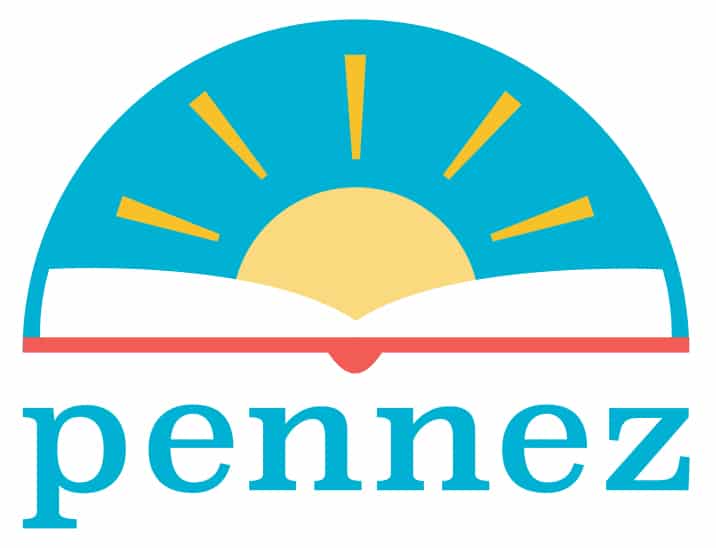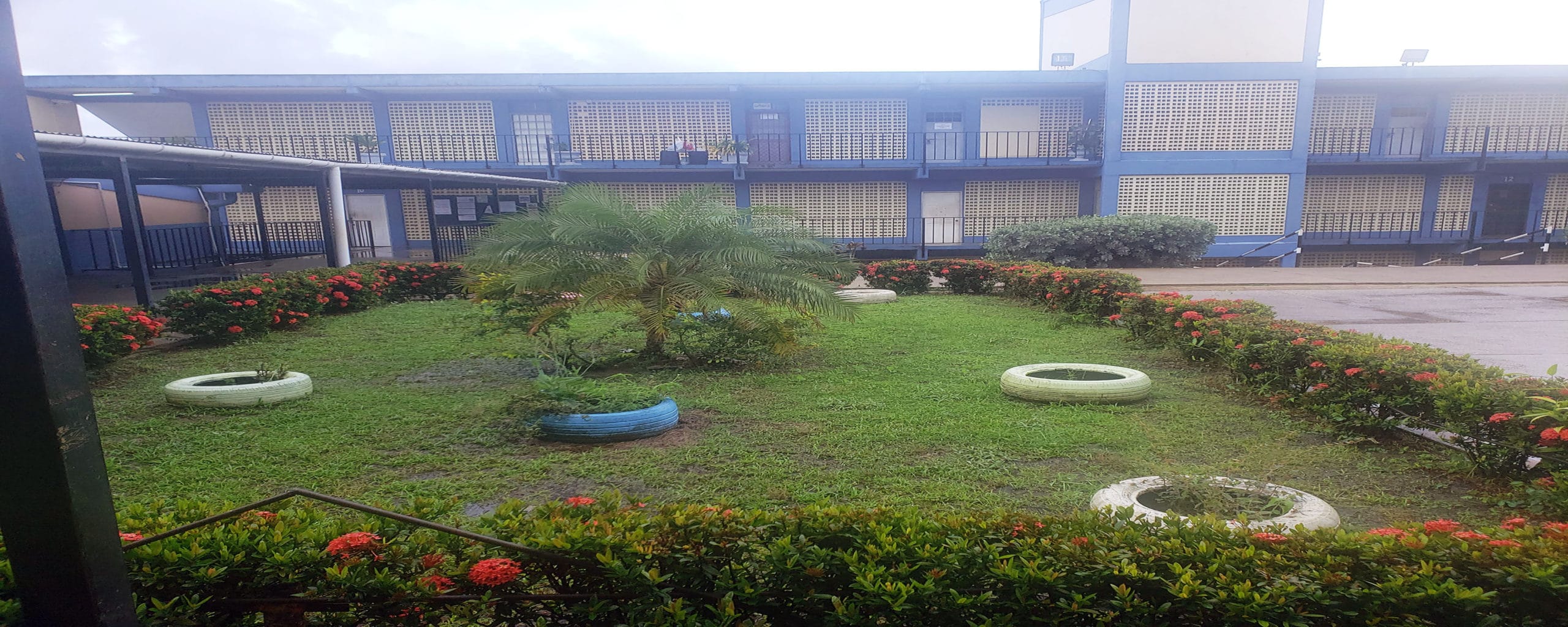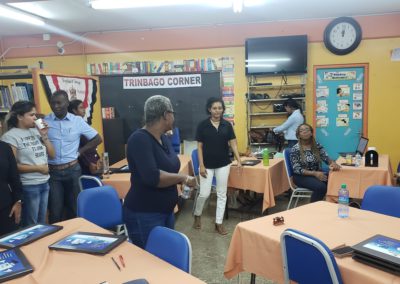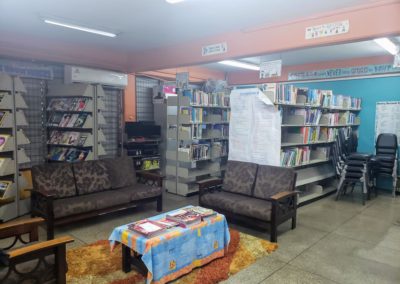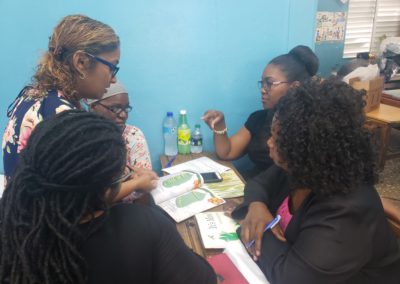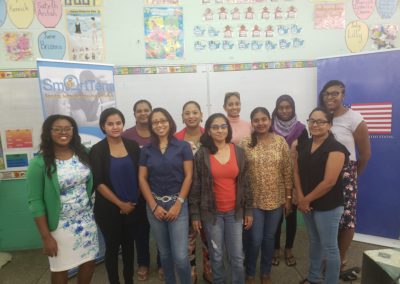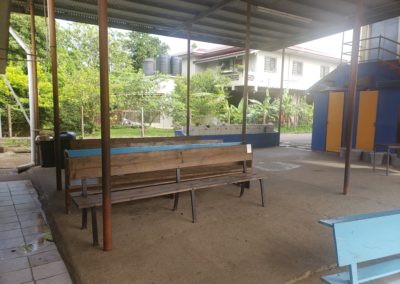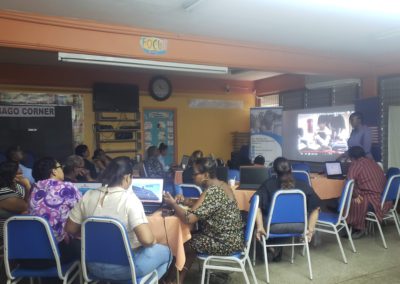Trinidad & Tobago Training: Learnings & Reflections
How We Can Learn From One Another Ending Cultural Opposition & Biases
I had the honor of visiting Primary (Elementary) and Secondary (High School) schools in Trinidad & Tobago in 2019. Educators on their beautiful island shared similar challenges and experiences that other educators face here in the United States. My biggest take away was that educators living on the island needed a better hardware infrastructure, faster Wi-Fi, and cohesive educational leadership.
From the culture, I enjoyed eating Roti every day in Trinidad. I asked over 25 residents on the island what their favorite thing on the island was, and I was told the food. It was true the kinds of food that I ate was unique and authentic to their island. The parts of the island where I stayed exhibited clean air and water where the clean air blew strongly each day. Their island respects the environment and I was amazed how many stores did not allow customers to leave with plastic bags. I also learned that Trinidad is the bigger island and Tobago is the smaller island where they are governed by the same entity which is why they are called Trinidad & Tobago. What fascinated me was that there is a large Indian population because Indians were sent to work as Indentured laborers in Trinidad & Tobago on May 30, 1845. Now, they celebrate their arrival as Indian Arrival Day on May 30th each year. This change implemented a culture that makes Trinidad a melting pot of many people or persons.
In the schools, some classrooms and hallways had no walls allowing the continuous fresh breeze to be felt. You could hear and Soca music any time throughout the day. Walking in the courtyard, I saw palm trees and fruit plants right next to us. For school governance, I learned that some schools were governed by their Ministry (government) and many other schools were Private. Private schools and government run schools had similar funding challenges. The teachers had an internal drive where some shared,
I was excited to see the diversity in ages and ethnicity amongst the educators. There were African teachers, Indian teachers, principals, and administrators. Most importantly though, they considered themselves as Trinidadians. They did not consider themselves as Black teachers, or Indian teachers as what we hear in the U.S.
The racism and hatred amongst the people did not exist during my time. I do understand though experiencing the culture for a longer time period would have given me a broader view of the dynamics and tensions. However, when I reflected on my experience above was that despite the internal unrest for education change. There was still a bond and a sense of community that I do not feel in the United States.
Right now, in 2020, America is faced with racism and white supremacy ideologies. The ideologies were stemmed from the desire to conquer, have economic power, and to strip down the souls of the ones they captured. These ideologies that were created by our ancestors affect us largely by a lack of knowledge and ignorance from one another. For example, where you might see someone stay a hurtful racist comment, or shout words that are highly unjust. Sadly of course seeing the malicious attacks of George Floyd and Ahmad Berry were stemmed from these systematic ideologies so that the muted voices, black and brown, and poor cannot be heard.
Trinidad and Tobago are haunted by slavery and impoverished neighborhoods. However, the historical deficits and racial ideologies on the island are being shifted where hope and unity were realistic. We can learn from Trinidadians and other international allies. Racism is not as deeply embedded in their culture. I was told the only time it comes out is during political arguments. However, for the most part, Trinidad and Toboggans live happily and strive to be better citizens. We can learn that living amongst one another, food, music, acceptance beyond tolerance of cultures can create change.
On Trinidad and Tobago News Forums, ” In Trinidad’s history (distinct from Tobago’s), the episode of Emancipation was crucial in changing the character of the population of the island. For one, Trinidad became a magnet for the emancipated slaves of the other, older and more-densely populated islands, especially Grenada, St Vincent and Barbados. An estimated 10,278 of these West Indian immigrants came to Trinidad between 1839 and 1849, while between 1871 and 1911 about 65,000 immigrated. By 1897 there were about 14,000 Barbadians living in the island. The largest immigration, however, came from the importation of 143,949 Indian indentured labourers between 1845 and 1917.”
I met dedicated, caring, kind, and brilliant teachers. Some educators started their own private schools, others wanted to find ways to revolutionize the island, and others just wanted a better way. What I loved was that the educators poured their heart out when I visited their schools to better learn and provide a solution for their challenges. Here is what some said.
- Would like the Ministry to effect the repairs so that the school could return to normal functioning.
- Collaboration with stakeholders interested in literacy development is always welcome.
- Provide a booth as the TUTTA teachers convention.
- Planning a remedial reading program for students at different levels in the school.
- More sharing of what works by actual practitioners in local classrooms too many teachers are skeptical of changing their practice, they prefer to stay in their teaching comfort zone and blame the students and their parents
- The availability of resources and the experience of being immersed in a classroom which utilizes these techniques so I can use that lived experience to apply to my classes.
- I would like guidance and assistance to connect with international companies to receive materials for my students for use within the classroom.
- The provision of resources (books, charts etc.) that would enhance the teaching and learning experience. Also, more training sessions to keep persons informed.
